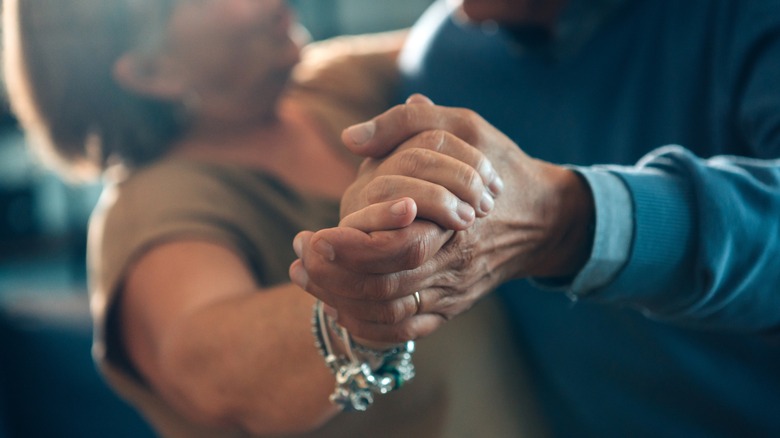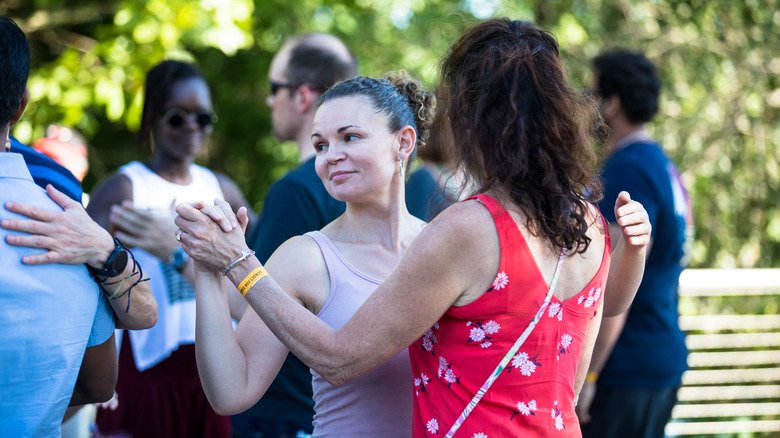Researchers Suggest Latin Dancing Can Help Improve Your Memory
Science shows us that bustin' a move is not only a great deal of fun, but can also benefit nearly every area of our overall health and wellbeing. From our physical health to our cognitive, mental, and social health, dancing can foster socialization, improve our balance, boost cardiovascular health, increase our flexibility, as well as fight off depression and stress (via Everyday Health).
A new study published in Frontiers in Aging Neuroscience further reinforces these findings by revealing a link between Latin dance and improved working memory function. 333 Spanish-speaking Latin American participants, over the age of 55, were recruited from various locations around Chicago including supermarkets, study sites, churches, health centers, and more. Over the course of eight months, one group of participants engaged in a dance program that offered salsa, bachata, merengue, and cha-cha-cha classes twice a week (via U.S. News & World Report). In comparison, participants in the control group attended a health education course once a week over the course of four months.
The link between physical activity and cognitive health
Not only did the dance program participants report feeling healthier overall, but cognitive testing showed that at eight months, those in the dancing group displayed marked improvements in their short-term working memory function compared to those in the control group, according to U.S. News & World Report.
Study author Susan Aguinaga offered a plausible explanation for their findings by highlighting the connection between physical activity and improved cognitive function. As reported by U.S. News & World Report, Aguinaga stated, "We think it worked for several reasons. More time being spent active, that could be a reason ... In general, populations have a hard time maintaining their physical activity levels, but when it's an activity that they actually enjoy, then they will be more likely to maintain that activity for longer periods of time." When it comes to the nature of Latin dance specifically, Aguinaga points out that the process of learning and recalling various complex dance moves may have played a role in participants' memory improvement.
In their research, the study team discussed how their findings could help address health inequities faced by the Latin American community (per Frontiers in Aging Neuroscience). By designing accessible exercise programs that feature music and dance that are of cultural significance to specific racial or ethnic communities, the risk for chronic disease, disability, and cognitive impairment could be reduced amongst these populations.


